McGill standoff with protesters continues as administration considers options
A pro-Israel counter-demonstration led to a heavy police presence and tense campus environment.
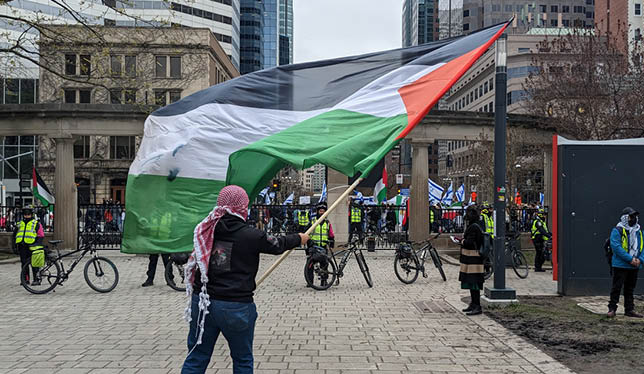
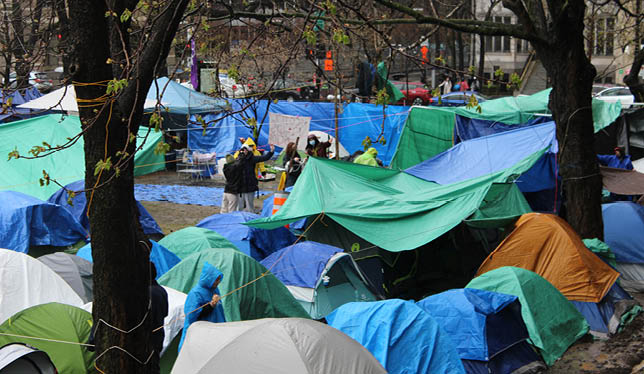
In front of the entrance to a fenced off camp on McGill’s downtown Montreal campus, a sign listing donation items reads: sleeping bags, blankets, sinus medication, boots, socks, gauze, epi-pens, sanitary wipes. There are now around 40 tents sprawled across the university’s lower field, with protesters accepting a steady stream of donations since they first pitched tents on April 27.
The activists, comprised of students from Montreal-based universities, some faculty, and members of Montreal’s Jewish and Arab communities, among others, are demonstrating support of the Palestinian people since the outbreak of the Israel-Gaza war on October 7. They are demanding that McGill and Concordia divest in companies that have business ties with Israel.
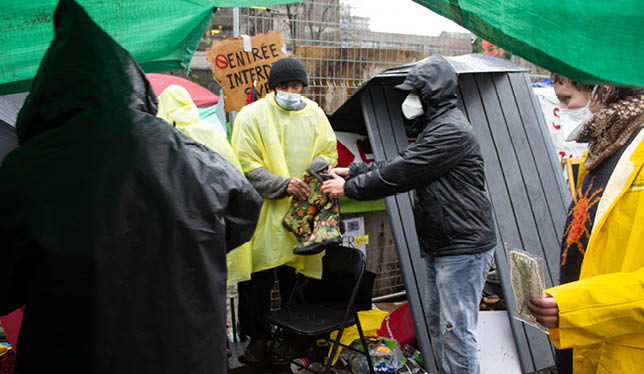
More than 34,000 have been killed and 1.5 million displaced since the Israeli military offensive, in retaliation to a Hamas-led attack that killed 1,200 people and led to the capture of 250 hostages, according to Israeli military officials.
For the past eleven days, McGill has called on the protesters to dismantle the encampment. In emails to staff and students beginning on April 27, the university administration has repeated its support for freedom of expression and assembly, but stated encampments violate both university policies and the law. President and vice-chancellor Deep Saini wrote that the administration had seen video evidence of antisemitic language and intimidating behavior at the site. “Do you want to be associated with an event that flies patently in the face of the university’s core values?” he asked. “If not, I ask you to please leave the site now.”
Student protesters deny the allegations of antisemitic language or intimidating behavior, emphasizing that the community guidelines for the camp denounce antisemitism, racism, homophobia, or discrimination of any kind. On April 30, the university announced that it had failed to reach a resolution to end the encampment through university protocol and had to resort to requesting police assistance. President Saini described the decision as “gut-wrenching” but one that he judged to be necessary.
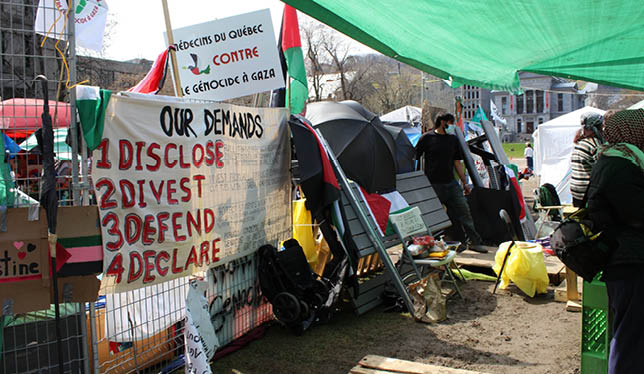
The following day, an injunction request made by two McGill students to ban protesters from being within 100 meters of any McGill building for a 10-day period was denied by a Quebec Superior Court judge. Within a few hours, President Saini wrote to protesters with an offer that if McGill community members permanently and immediately leave the encampment, he would commit to “holding a forum […] to discuss your various demands and any contrary views in a peaceful, respectful and civilized manner.” The protesters, however, say they will not be dismantling the camp until the university produces tangible evidence of its divestment from companies with business ties to Israel.
Student encampments and protests have spread on university campuses across North America, leading in some cases to expulsions, arrests and violent encounters. McGill’s encampment has attracted supporters from throughout the Quebec university community. Dyala Hamzah is a professor in the history department at the University of Montreal. After spending three days at the demonstration, she said she hadn’t seen anything to warrant either an injunction or police intervention. “How aggressive or dangerous is this? How is this a threat to anyone?” she asked. “This is about upholding international law and upholding the many resolutions of the United Nations that defend Palestinian rights to self-determination and right to return.”
Dr. Hamzah, who is Palestinian, said that the protest is evidence of how Western universities fear political dissent and freedom of expression. “The threshold for political dissent, for political resistance and for political expression is so low today. It is completely contradictory to the mission of the university.”
On May 2, a counter-protest of around 200 pro-Israel supporters gathered outside of the university’s main Roddick Gates entrance, which McGill had closed. A line of about a dozen police officers, including some on horseback and with tactical gear, created a barrier between the two protest groups and could be seen throughout campus. Many pro-Israel demonstrators were draped in Israeli flags and held signs with pictures of hostages that are still held captive since the Hamas attack seven months ago.
The pro-Israel demonstrators set up a stage where several speakers spoke of the impact of the October 7 attack, as well as their disappointment in McGill’s administration for not dismantling the encampment Omer Maor, an Israeli man living in Montreal, said that the calls for divestment are misguided and that the encampment is only causing more separation between the two sides. “If they were here, doing legal things, and trying to get McGill’s investment in Palestinian universities, maybe I would have a different perspective,” he said. “But the source of the divestment movement is one that is violent and it is not coming to create a dialogue, it is coming to create separation.”
Quebec Premier François Legault told reporters on May 2 that the encampment must be taken down. “It’s an illegal encampment,” he said. “The law must be respected so I expect police to dismantle these encampments.” Montreal police, however, said in a statement posted on X later that day that it has taken note of the rejection of the injunction and that it will continue to monitor the situation.
At the end of a challenging week, President Saini wrote the McGill community to say that the situation remains complex and difficult, adding that the university was working closely with the police, “in full respect of the values that we hold dear as an institution.”
Featured Jobs
- Health Sciences - (2) Postdoctoral/ Research Fellows - 3 year term (The Bridge Research Consortium)Simon Fraser Uuniversity
- Vice-President Research & Scientific EngagementMS Canada
- Economics - Associate/Full Professor of TeachingThe University of British Columbia
- Public Policy - JW McConnell Visiting ScholarMcGill University
- Fashion - Instructional Assistant/Associate Professor (Creative & Cultural Industries)Chapman University - Wilkinson College of Arts, Humanities, and Social Sciences


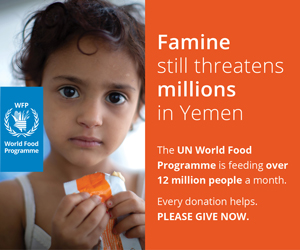


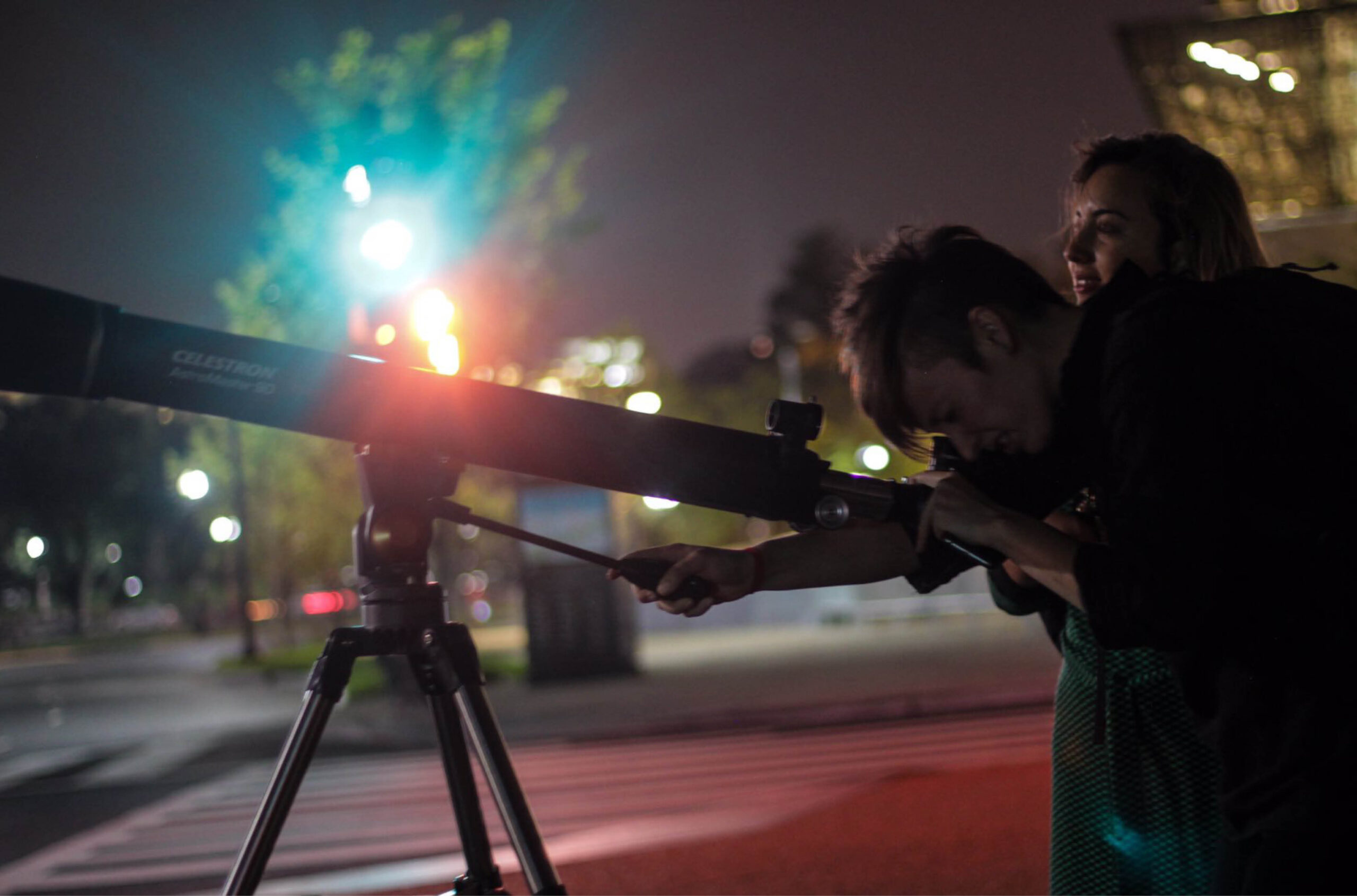

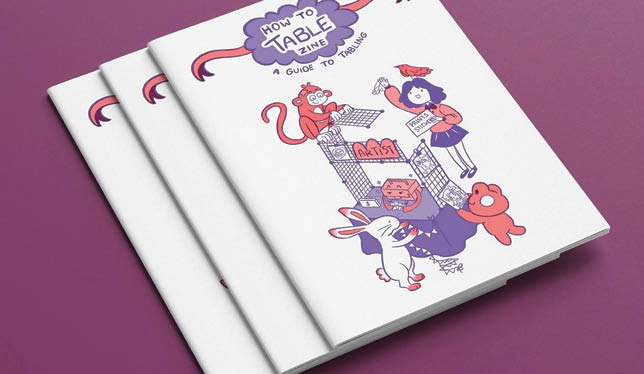
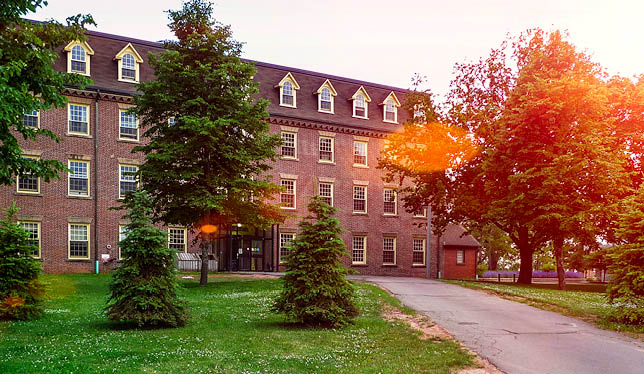

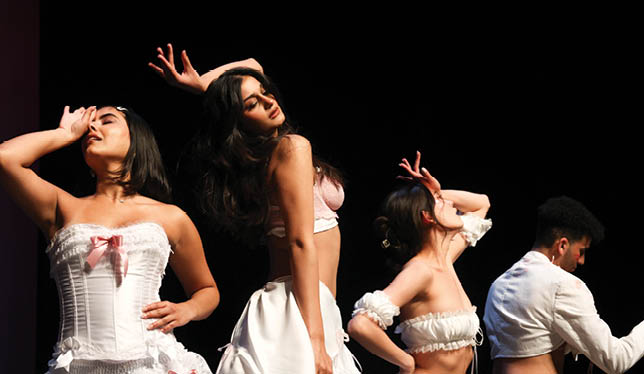


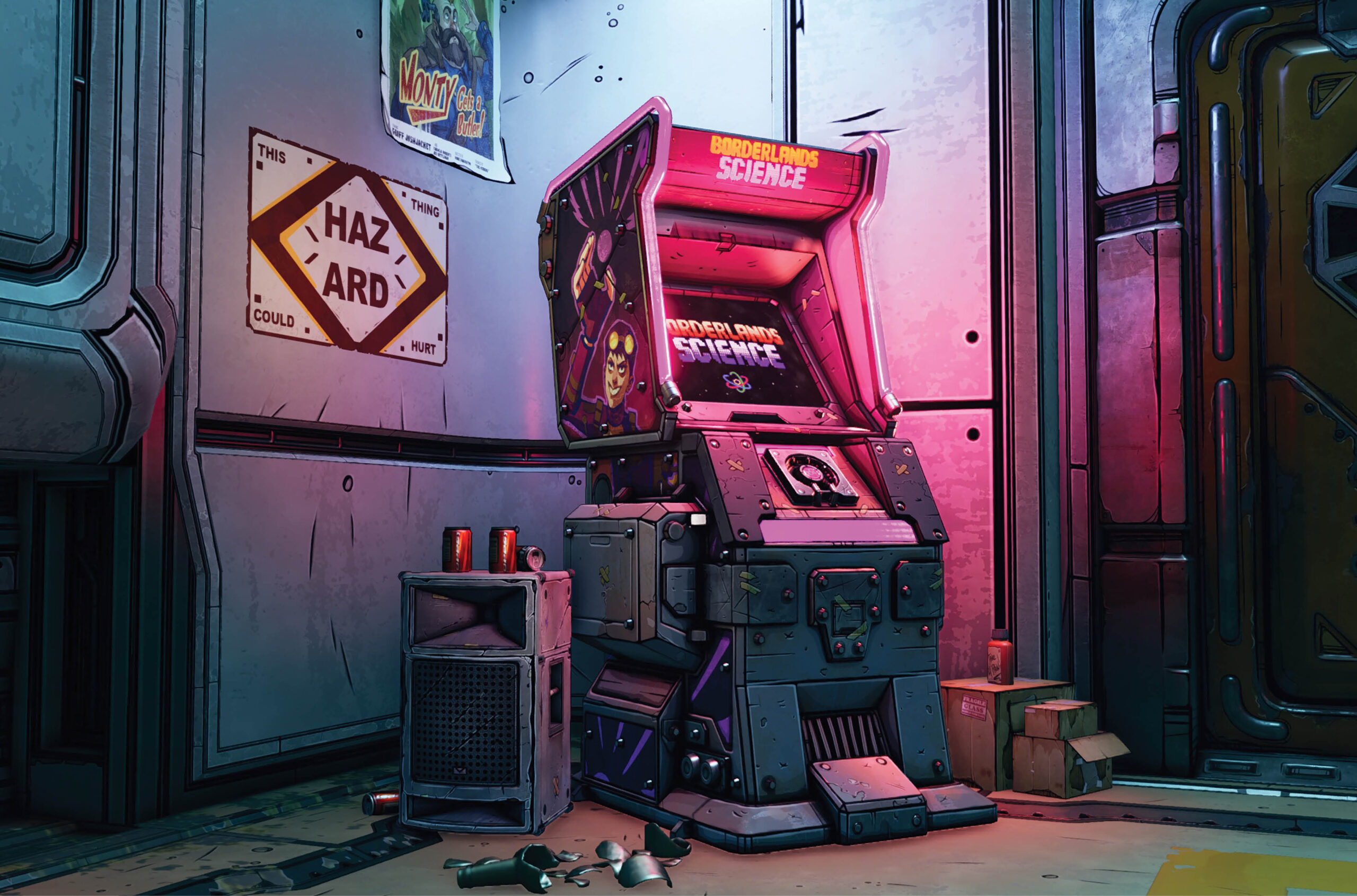


Post a comment
University Affairs moderates all comments according to the following guidelines. If approved, comments generally appear within one business day. We may republish particularly insightful remarks in our print edition or elsewhere.